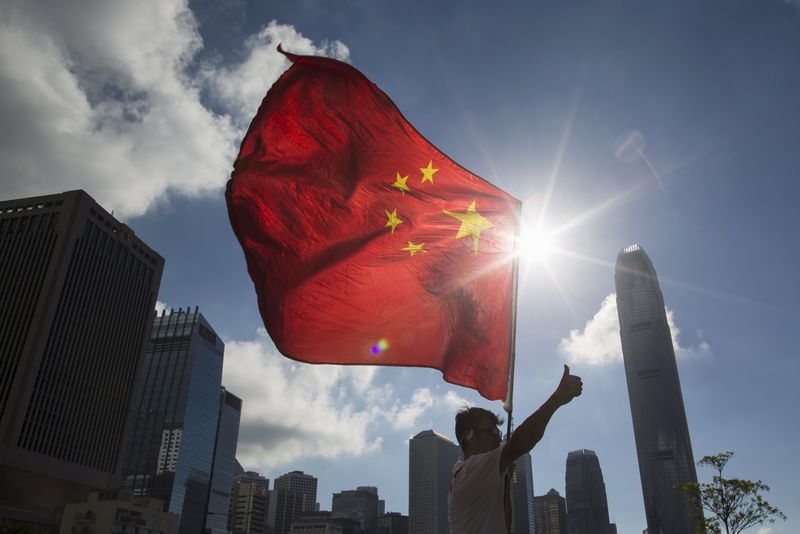* China state media: Kovrig suspected of harming state security
* ICG says it is seeking access to employee detained in China
* Kovrig's detention follows Huawei CFO's arrest in Canada
* Canadian government says it sees no link between cases
* China says Kovrig may have broken foreign NGO law
By Ben Blanchard and John Ruwitch
BEIJING/SHANGHAI, Dec 12 (Reuters) - Chinese authorities are questioning former Canadian diplomat Michael Kovrig, who was detained days after the arrest in Canada of a Chinese businesswoman, on suspicion of engaging in activities that harmed China's national security.
The state-run Beijing News said on Wednesday that Kovrig, who works for the International Crisis Group (ICG), had become the subject of an investigation by the Beijing State Security Bureau.
He was detained after police in Canada arrested the chief financial officer of China's Huawei Technologies Co Ltd HWT.UL on Dec. 1 at the request of U.S. authorities, infuriating Beijing.
The Canadian government has said it saw no explicit link to the Huawei case. citizen Michael John Kovrig was on Dec. 10 investigated in accordance with the law by the Beijing State Security Bureau on suspicion of engaging in activities that harm China's state security," the newspaper said in a brief report.
The case is continuing to be investigated, it added without elaborating.
Accusations of harming state security could cover a wide range of suspected crimes, and in China are often very vague when first levelled.
Canadian Prime Minister Justin Trudeau said Ottawa was engaging with Chinese officials about the case, which in the short term at least looks to have hurt his government's bid to forge closer trade ties with China.
"This is obviously an issue that we are taking very seriously and it is ongoing," he told reporters in Ottawa on Wednesday.
The ICG, a think-tank focused on conflict resolution, said in an earlier statement Kovrig was detained by state security officials in Beijing on Monday night.
Diplomats in China said the apparent involvement of the secretive state security ministry, which engages in domestic counter-espionage work, among other things, suggests the government could be looking at levelling spying accusations.
However, ICG President and Chief Executive Robert Malley said the group did not engage in such activity.
"I don't want to speculate as to what's behind it but I am prepared to be categorical about what's not behind it, and what's not behind it is any illegal activity or endangering of Chinese national security," Malley told Reuters, before the state media report came out.
"Everything we do is transparent, it's on our website. We don't engage in secretive work, in confidential work."
Chinese foreign ministry spokesman Lu Kang, also speaking earlier in the day, said he had nothing he could say on the details of the case. He said the ICG was not registered in China as a non-government organisation (NGO) and Kovrig could have broken Chinese law.
"If they are not registered and their workers are in China undertaking activities, then that's already outside of, and breaking, the law, revised just last year, on the management of overseas non-governmental organisations operating in China," Lu said.
The Ministry of Public Security, which has oversight over foreign NGOs, did not respond to a request for comment. China's Ministry of State Security has no publicly available contact details.
The foreign NGO law, which took effect in January, is part of a raft of new national security measures introduced under President Xi Jinping.
"All foreigners that come to China, so long as they respect the law, have nothing to worry about," Lu said.
'NO COINCIDENCES'
William Nee, China Researcher for Amnesty International's East Asia Regional Office in Hong Kong, said Kovrig's detention was alarming, especially as it appeared to be the first time the law has been used to detain a foreign NGO worker.
"We need to wait for the official explanation from the Chinese side, but this detention could have a chilling effect on the foreign NGO and business communities in terms of their feeling safe while travelling in China," he told Reuters.
Guy Saint-Jacques, Canada's former ambassador to China, was asked by the Canadian Broadcasting Corp on Tuesday whether the Kovrig detention was a coincidence after the arrest of Huawei executive Meng Wanzhou.
"In China there are no coincidences ... If they want to send you a message, they will send you a message," he said. Western diplomat in China, who asked not to be identified, was even more blunt: "This is a political kidnapping."
China had threatened severe consequences unless Canada released Meng immediately and analysts have said retaliation for the arrest was likely.
Meng was granted bail by a Canadian court on Tuesday, 10 days after her arrest in Vancouver on U.S. claims that she misled multinational banks about Iran-linked transactions caused a diplomatic dispute.
